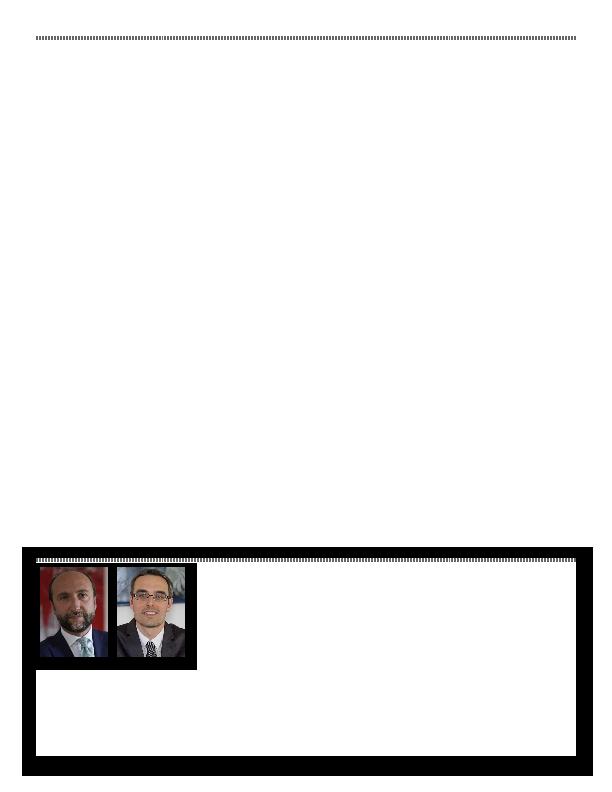
Sector What Does the Future Hold for
Online Sales Restrictions?
restrictions and e-commerce could see
a significant change in Europe after the
European Union (EU) Commission's plan
to fully embrace the "digital revolution"
and open up digital opportunities for its
citizens and businesses.
On May 6, 2015, the EU Commission
announced a Digital Single Market
strategy for Europe. The aim of this
strategy is to create in the near future a
"connected digital single market," which
in the words of Mr. Jean-Claude Junker
(President of the EU Commission), could
"generate up to EUR 250 billion of
additional growth in Europe in the course
of the mandate of the next Commission."
figures released by the Commission, a
fully functional Digital Single Market
"could contribute EUR 415 billion per
year to the European economy and create
hundreds of thousands of new jobs."
its ambitious goals (rather optimistically)
by the end of 2016, through a set of
(public and private) online barriers and
"regulatory walls" that currently hinder a
"seamless" access and exercise of online
activities by consumers across the 28
national markets of the EU.
The overall strategy is built on three
pillars and 16 key actions. The first
pillar focuses on granting a better access
for consumers and businesses to digital
goods and services across Europe.
Within the first pillar, as a
complementary action of the Digital
Single Market strategy, the Commission
also launched an Antitrust Competition
Inquiry into the e-commerce sector, with
a particular focus on "potential barriers
erected by companies to cross-border
online trade in goods and services where
e-commerce is most widespread," such
as "electronics, clothing and shoes, as
well as digital content."
decision, despite an upward trend, cross-
border e-commerce remains rather limited
in the EU. In 2014 only 15 percent of
the EU population shopped online from
based in another EU member state. This
is not only because of language barriers,
consumer preferences and differences in
legal frameworks between member states,
but also due to contractual restrictions
which may be "deliberately" created by
players in the e-commerce sector.
The purpose of the e-commerce
inquiry is to gain more market knowledge
in order to better understand the nature,
prevalence and effects of the (private)
barriers and identify competition
concerns, to then be assessed in the light
of EU antitrust rules.
In the course of the inquiry, the
Commission may request the companies
and the subjects concerned, to supply the
information necessary for giving effect
to Articles 101 and 102 of the Treaty
on the Functioning of the European
Union (TFEU), and carry out any
inspections necessary for that purpose.
In particular, the Commission may
request these entities including service
providers, suppliers and distributors of
tributario since 2000. He has broad experience in international
dispute resolution, litigation and arbitration, with a focus on
commercial agreements and distributorship. He represents and
advises Italian and international corporations. His main areas of
practice are commercial law, competition, distribution, IP and
trademark protection.
tributario. He has broad experience in commercial and international
law, with a strong focus on litigation and contractual issues. For
many years he has actively dealt with the implementation of
selective distribution, sales and agency networks worldwide for
several Italian and multinational corporations.
Piazza Borromeo, 12
Milan, Italy 20123
Fax: +39 02 805 2565
s.zandegiacomo@fdl-lex.it
fdl-lex.it